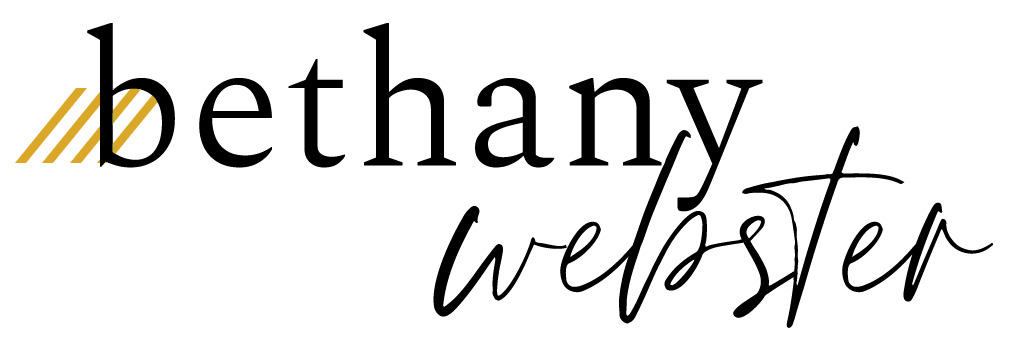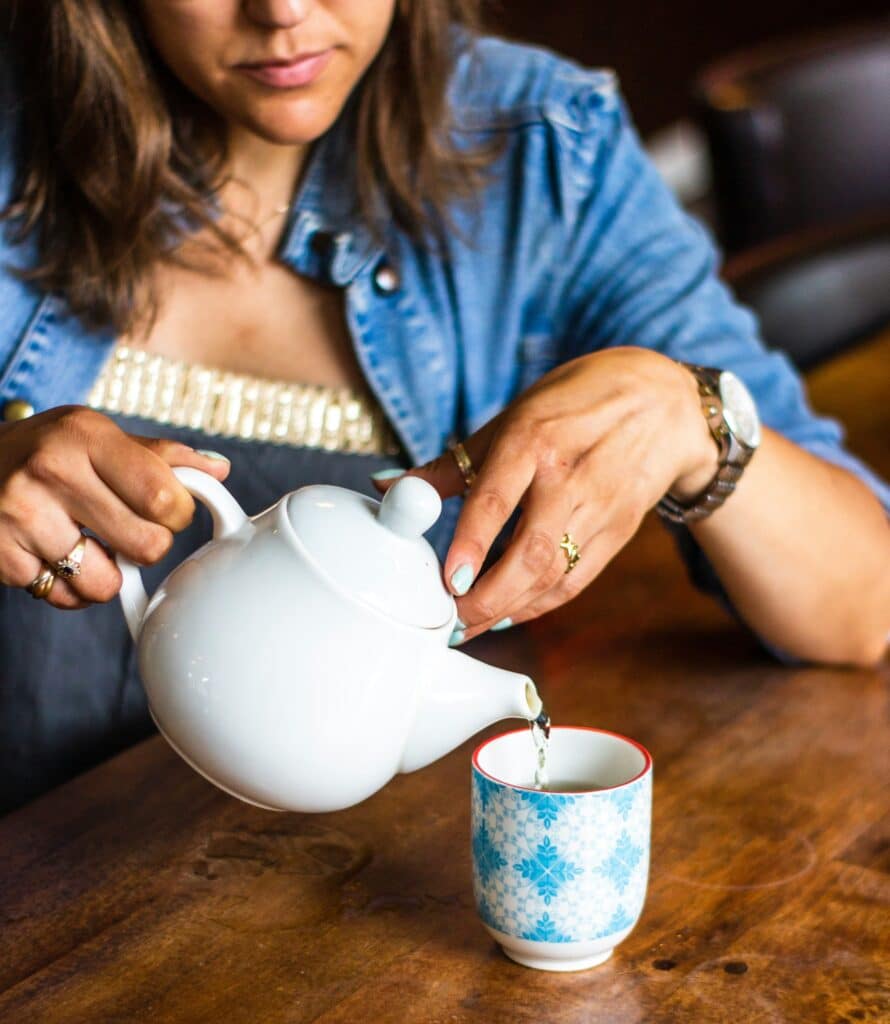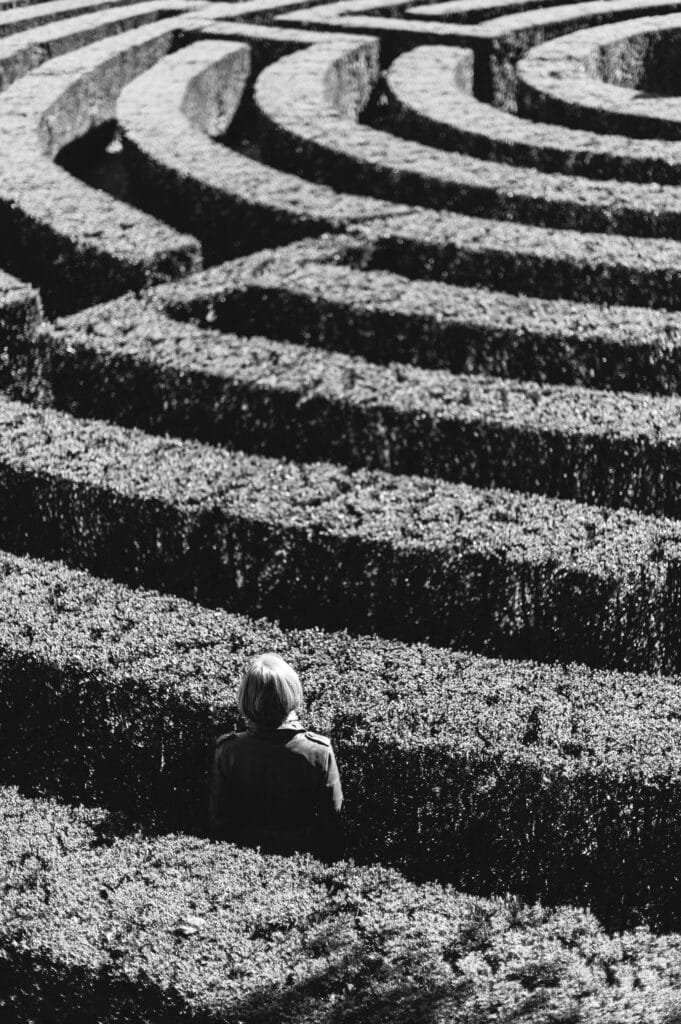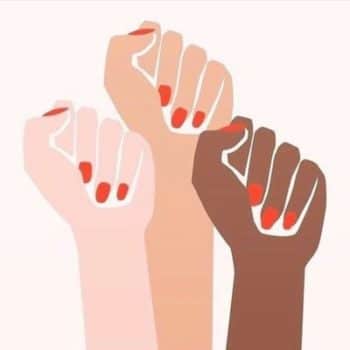Critical Examination Is Not Mother Blame (You Don’t Owe Your Mother)

In our culture, mothers are generally idealized or disrespected. It’s viewed as a very black or white issue. There’s no place for daughters to put their authentic, complicated feelings about their mothers, without having to suppress them entirely or accept the label of “ungrateful daughter.” From a patriarchal perspective, any critical examination of the mother/daughter relationship on the daughter’s part is equivalent to “mother blame.” This false equivalence has been an effective way to shame and silence children about their true experiences of their mothers and stalls their full individuation in our society. Here’s why you don’t owe your mother for your life and how to reclaim your truth.
What Is Mother Blame?
“Mother Blame” is a term that denotes the cavalier blaming of mothers for any issues an adult may have. It is often used when people blame mothers for any or all troubles or challenges. In patriarchy, the whole system blames the mother: from mental health professionals to the legal system. It is a patriarchal strategy that perpetuates the oppression of women by not acknowledging the socio-economic environment they must mother in. Though mother blame is unfair, the reaction to mother blame silences and dismisses the experiences of children. By nature, “mother blame” silences and prevents the critical examination of mothers required for most daughters and children to heal.
The blaming of mothers surfaces a deep shame that women develop as mothers in patriarchy. Because they have been denied their identity, rights, and personhood for so long, they’ve internalized their experience to a degree that keeps them blind to how they’ve injured their children (and often unwilling to even tolerate or hear about their children’s experiences). This internalization may be a survival response but it prevents collective healing.
Critical examination is NOT mother blame: it is holding yourself and your mother accountable to true healing and growth.
Silencing critical examination of mothers is connected to the idea of “owing” your mother. She gave you life; she gave birth to you and sacrificed her hopes and dreams for you: therefore, you owe her for your life. Sound familiar? This is a fallacy. Here’s a breakdown of why this happens and how to heal.
Critical Examination Is Not Mother Blame and Here’s Why
There are few relationships quite as complicated as the relationship with our mothers. Here’s why your critical examination is not only valid but necessary:
1. “Owing” Your Mother Is An Illusion
One of the most problematic and common beliefs daughters can have is, “My mother gave me life. I owe her ________.” Of course, there’s nothing wrong with having genuine love, respect for one’s mother, and genuine appreciation for all that she may have done for you. However, the feeling of “owing” your mother is something very different and a painful illusion that can bring an enormous price.
I hear from women all the time who feel this way and use it as a rationale to hold themselves back from what they desire, as a cause for feeling guilt or self-doubt, as a reason to tolerate poor treatment or to stay in a stuck place.
Children don’t “owe” their mothers. This illusion of indebtedness keeps generations of women stuck.
I recently saw a video on Facebook that was geared towards mothers who are feeling stressed, sleep-deprived and unappreciated. At the end, it said, “Look into the eyes of your child and know that you matter.” Line after line expounded upon how the mother is elevated in the eyes of the child, implying that that should be enough to get you through. The entire point of the video was that a mother needs only look into her children’s eyes for validation.
I found it odd that it didn’t mention the support of friends, partners, or communities to help women through tough times as mothers. It didn’t mention self-care. It didn’t help women to see themselves as inherently valid and important. It simply told mothers to look to one place for a sense of value and meaning: the eyes of their children.
2. The Source of a Child’s Indebtedness Is Patriarchy
At first glance, this can seem like a harmless video, with the intention of honoring the incessant work mothers do. It was “liked” by thousands of people. But I found this video disturbing for many reasons.
It perpetuates the illusion to mothers, that the approval of one’s children should be compensation enough for the brutally incessant, thankless, isolating work of motherhood in the modern world.
And it sets up the child for bearing the emotional burden of a mother’s struggles and for learning how to over-function as an emotional caretaker. It sets up the child to feel that she “owes” her mother a version of herself that protects her mother from her own pain. That belief is like a poison that can damage the daughter’s self-concept, self-esteem, and ability to form lasting, healthy relationships with others.
3. Examination and Boundaries Are Healthy
Unfortunately, one of the most common manifestations of the Mother Wound is a codependent, enmeshed relationship between mother and daughter. Portrayals like the one in the video I described perpetuate and reinforce this unhealthy enmeshment as normal “mother love.” However, this is too great a weight on the child and does not truly emancipate the mother. Critical examination and boundaries are not only healthy but required for real healing.
4. Inner Growth Relies on Personal Accountability
If you have felt that you “owe” your mother and that you permit inappropriate behavior or relax your boundaries with your mother, please consider the following:
- A child should not be expected to be her mother’s best friend, savior, mirror, therapist, or sole reason for living.
- It’s a mother’s responsibility, as an adult, to get the support she needs from other adults including communities, therapists, spouses, partners, institutions, etc.
- A mother’s well-being is not a child’s responsibility.
A mother expecting emotional labor from her child makes her a hostage to her pain.
Often if this pattern starts in childhood, it continues until the daughter is an adult, causing her to experience self-doubt, guilt, suppressed rage, imposter syndrome, and problematic relationships, among other symptoms.
The Root of the Mother Blame Conundrum
Mothers are either demonized or idealized. This polarity leaves no room for objective review or critical analysis of the roles mothers played in our adult behavioral patterns. While “mother blame” is rampant and a product of patriarchy, criticizing your mother is generally judged and followed with comments like, “but she did the best she could” or “but she loves you.” Though patriarchy and the resulting trauma women face are truly to blame, mothers need to be held accountable on the journey toward collective healing.
Our culture, with its hostility towards women as expressed in diminishing access to reproductive healthcare, the wage gap, lack of ample maternity leave, male violence against women, as well as other systemic barriers like institutional racism, all combine to isolate the mother and coerce the child to carry the burden of emotionally validating her mother in the absence of support from partners, adults, institutions, and society in general. That is a gap that a child can never fill.
Children are asked to pick up the slack for the lack of respect and emotional support mothers are given in this culture. It tells mothers that their children should be enough of a reward and shames them when it doesn’t feel like enough.
Pain from our mothers gets passed down to us from two main sources:
- The degree of inherited trauma or abuse that she may have experienced in her family of origin which she may unconsciously pass down to some degree.
- The cultural Mother Wound; the pain of being a woman in this culture and how that pain gets passed down through the generations.
Why Children Get the Idea They “Owe” Their Mothers
The culmination of many factors may result in a child feeling like she “owes” her mother:
- That natural loyalty that all children feel towards their mothers
- Seeing the mother suffer without support while knowing her mother is necessary for her survival
- The mother reinforcing the idea that the child is responsible for her wellbeing
- The mother’s belief in being indebted due to her own history (she may have felt she owed her mother)
- The mother’s lack of support from spouse/partner, family, friends, etc.
A Cycle of Entitlement and Deprivation
I recall one woman telling me years ago very matter-of-factly that in her culture, it’s considered normal that the parents sacrifice everything to have the children, and then when the children are grown, they are then responsible for meeting all the needs and whims of the parents. It wasn’t about love. It was a transaction based in an atmosphere of deprivation. And, everyone was miserable. The cycle of entitlement and deprivation continues.
An extreme but not uncommon example of this dynamic is mothers who confide in their children that they are contemplating suicide.
For generations past, and for some today, being a parent meant providing food, shelter, clothing, and education. Emotional needs were not seen as important as physical needs. Children were commanded to respect their parents by major religions. Like objects or pets, “children were to be seen and not heard.” Issues like addictions, mental illness, financial struggles, abuse were simply not talked about. People believed that if you pretended they didn’t exist, kept them secret, then everything would be OK. We are beginning to realize that this is not true. These issues don’t “go away” when you pretend or try to forget. They are present in our everyday struggles.
When Enmeshed Daughters Try to Individuate
A child’s natural development includes growing up and having their own separate, independent lives. For a daughter enmeshed with her mother, attempts at individuation can be a brutal battlefield for ownership over herself. It’s crucial that the daughter get support in de-bunking the distorted patriarchal logic that states that having your own separate life makes you a perpetrator of your mother, that separateness is equivalent to aggression, or that your boundaries are an attack. One must resist these distortions and get support from multiple sources to set in motion new, healthy patterns instead.
On my own journey as a recovering “parentified daughter,” I learned early the painful belief that, “I’m depriving my mother when I take care of myself.”
How to Turn “Mother Blame” Into Real Healing
It has been a long journey of learning to:
- de-couple my mother’s sense of entitlement from my own self-care
- take up space without expecting abandonment
- attract a romantic partner with a capacity for equal reciprocity
- voice a clear No to people who expect silent complicity with my own subjugation, however subtle
- no longer equate empowerment with loneliness
This work takes time, step-by-step, to build trust with the inner child and help her learn a new paradigm in which it’s safe to be real, safe to have needs, safe to say No, safe to have emotions, safe to celebrate oneself, and safe to be seen. It takes setting boundaries, learning self-care, and allowing oneself to grieve.
So many of us have witnessed our mothers struggle, sacrifice themselves and suffer under all manner of oppressions. Children are naturally loyal to their mothers out of necessity for survival. But true respect is not possible when it is commanded or based on obligation, shame, or emotional debt.
“Owing” is not about respect. It’s about control.
How Mothers Get the Idea That Children “Owe” Them
Ways that mothers can get the idea that their children “owe” them may include:
- Feeling deprived or not valued in other areas of their adult lives
- Lack of insight about their own childhood history
- Childhood histories that involved abuse, neglect, or trauma with little or no therapy
- Possible mental illness
- The belief that mothers hold the power over their children absolutely
Mothers who reinforce this are often unaware that they are doing it. It’s important for daughters to get support and set healthy boundaries with their mothers.
The staggering amount of love and physical and emotional output that a mother has to do needs to be given its due respect, awe, and sacred place in our society. But it will remain de-valued and relatively invisible as long as mothers play out the damaging dynamic of expecting their children to be their mirrors, saviors, and reasons for living. And, as long as society devalues women and induces children to pick up the tab.
We must become conscious of the ways in which patriarchy deprives mothers and how that deprivation is delivered upon the children. This is about freeing both mothers and daughters.
So much has been permitted under the belief that “I owe my mother.”Emotional abuse, physical abuse, neglect, painful silence, other traumas.
So much has been repressed under the ache of “I owe my mother.” True desires, potential, dreams, inspiration, abundance, wealth, and more have been bypassed and suppressed by women who were taught that their true expression injures those they love. And the emotionally deprived mothers who feed into this dynamic steal their daughter’s lifeforce and feed on it as though it were their own.
Anything obligatory is forced and not free. It’s not about true connection. It’s a transaction.
Beyond the Illusion of “Owing” Your Mother
There is a whole new world beyond the illusion of “owing” where your life is your own, and where your needs and feelings are embraced, not shamed.
Your life belongs to you. You don’t owe your mother.
Discouraging our ability to be confident in our separateness has been a tactic of the patriarchy to oppress women. I’m not talking about being separate in a cold, defensive way. But our separateness, as in being singular, whole, and one-unto-yourself. Our separate personhood is a place of power we must cultivate and support each other in developing. It doesn’t have to be either/or. Separate is not equivalent to being exclusive or disconnected. The more we feel entitled to our own love and support, the stronger we can become and the more positive change we can bring about together.
Examination Is Not Mother Blame, It’s Part of Healing
It’s time to reclaim the holy impulse to be separate. The taboo of the Mother Wound has long stalled the process of healing women individually and collectively. It’s important that we see the truth however uncomfortable, that healing the Mother Wound is NOT mother blame. It is an essential part of being a conscious, mature adult. In fact, healing the Mother Wound (and not passing it on to the next generation) is the ultimate expression of maturity and personal responsibility.
Points to contemplate for recovering from co-dependency with your mother:
- Your mother is a grown adult who is responsible for her own choices and well-being.
- Our job as daughters does not include protecting your mother from her own choices or experiences. That is her job to work through all that.
- Trust your gut. If you feel like your boundaries are being crossed, say something.
- You are not depriving your mother when you take care of yourself.
- Adults cannot be abandoned. Only children can be abandoned. You cannot abandon another adult.
- Your mother’s feelings in response to your choices, boundaries are hers to manage. Not your business.
- Your mother’s needs are not more important than yours.
- You can have compassion for your mother’s journey AND have firm boundaries with her.




